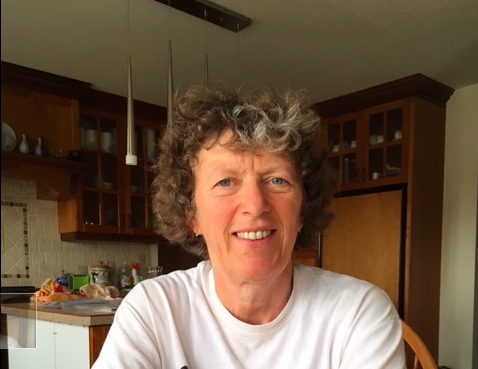We’ll be celebrating our 20th anniversary in Canada this year. Before our move, we’d already been growing hibiscus and foliage plants in the Netherlands for ten years, so all in all, we’ll be celebrating 30 years in production. Many things happened during those years. Like the Italian lira crisis and the British pound crisis in 1991, and an economic crisis in the greenhouse horticultural sector in 1994. We developed from clock grower to BB grower. We moved from Poeldijk to Honselersdijk. And in 1999, just before the introduction of the European currency, we moved to Canada.
We started growing hibiscus and were off to a good start. Over the years, we expanded our new company to 4,000 m2. The economy over here was also characterised by up-and-down movements. We’ve felt the impact of the economic crisis of 2009, for example. But by 2012, we could say that we survived it without any real damage. There was new room for growth, but initially, we chose to maintain our status quo. Until there was just no stopping it. Market demand increased significantly, when many other nurseries were sold and turned into cannabis production facilities.

We further expanded our nursery by 25% last year, to a total area of 5,000 m2. What’s special about the Canadian and American markets, is that you need to know who your customers are, before you begin producing. In the event of overproduction, there aren’t any customers who will purchase a batch for a friendly price. Instead, your excess plants will simply be destroyed.
We review our pricing every year. Last year, we were presented with some steep increases of our input cost. Firstly, the minimum wage isn’t indexed and had been unchanged since 2015. Our local (social) government introduced a 20% increase. Propagation materials also became 40% more expensive and labour costs of contractors and maintenance went up as well. Just like the prices of things like cardboard (+15%), pots (+30%) and potting soil.
The only way to absorb all these extra input costs, is by increasing our prices. We use differentiated prices for the different types of customers. For wholesale, we maintain a fixed price for each season. We’re planning to increase the price for 15-cm Hibiscus by 2.4% and the price for 15-cm Bromeliad by 2.7%. It’s always interesting to see the response to a price increase. Most of the time, it has a negative effect on the sales. That’s why we’re only increasing prices for wholesale this year, and for retail next year.
Our two children joined us in the business last year. They’re both well-educated and they’re exploring different directions now. One of them seems more interested in our business, while the other one is interested in starting up a new company. Different views, different interests and different market opportunities. We’d like to provide both with the same support and opportunities, even if that isn’t always easy.
Collaborating with your children is an interesting challenge. It can be tricky to keep business interests and the personal relationship separated. Something which can lead to tensions. We try our best and are looking ahead. After 30 years in the business, we realise that there will be changes in our own lives too. Another interesting challenge, which has us daydreaming, thinking and planning. The pace of the work, the creativity and the new technology are all things that the younger generation feels quite comfortable with.
Acknowledging change is not always easy. We’ll keep commited to our health and prosperity. And we’d like to wish our readers the same, at the beginning of this new year 2019.
Angelle van Kleef,
Grower of potted plants in Ontario, Canada




